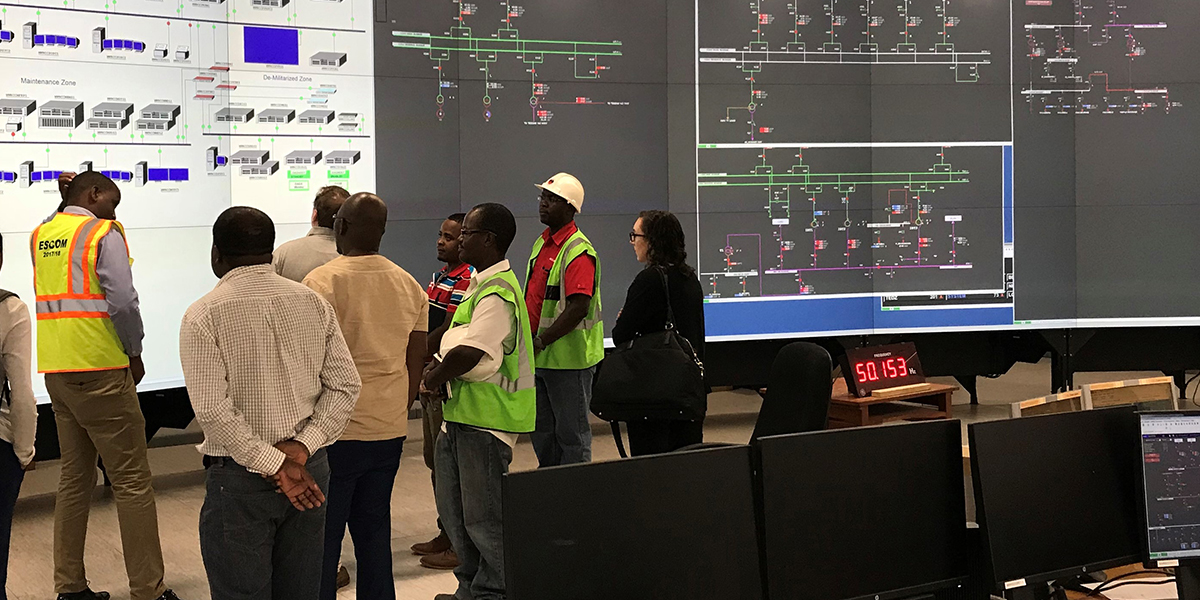Program Overview
MCC’s $351 million Malawi Compact (2013–2018) addressed financial, operational, and governance challenges among power sector institutions through the $27.5 million Power Sector Reform Project (PSRP). The project provided technical assistance and a management information system to support the theory that fostering an operationally and financially sustainable energy sector would lower the cost of doing business in Malawi, expand access to electricity for Malawian people and businesses, and increase value-added production in Malawi.
Evaluator Description
MCC commissioned Social Impact to conduct an independent final performance evaluation of the Malawi PSRP. Full report results and learning: https://data.mcc.gov/evaluations/index.php/catalog/110.
Key Findings
Tariff Reform
- Malawi’s electricity tariff is higher than it would have been without the compact, allowing for greater investment and sustainability in the sector.
Enabling Environment for Private Investment
- Stakeholders agree that Malawi now has a better environment for private sector investment in electricity generation, thereby achieving the key objective of the project.
Utility Financial Performance
- The PSRP had an early effect on utility finances and achieved several key milestones, such as a detailed financial model and an updated accounting manual. However, the early gains of the PSRP have gradually eroded.
Utility Operations and Corporate Governance
- Without a reform-oriented partner in the electrical utility, the PSRP had minimal influence on utility operations and corporate governance.
Policy implications
- The Malawi experience highlights the importance of anticipating political constraints, using technical assistance to support reform implementation, and employing adaptive management strategies to implement and institutionalize reform.
Evaluation Questions
The final performance and impact evaluation answered questions on organizational change and procurement outcomes. Some of these questions were:- 1 What were the results of the interventions on targeted outcomes – intended and unintended, positive or negative?
- 2 What are the lessons learned and policy implications for similar projects?
Detailed Findings
These findings build upon Interim Report 1 published in 2018 and Interim Report 2 published in 2019.Tariff Reform
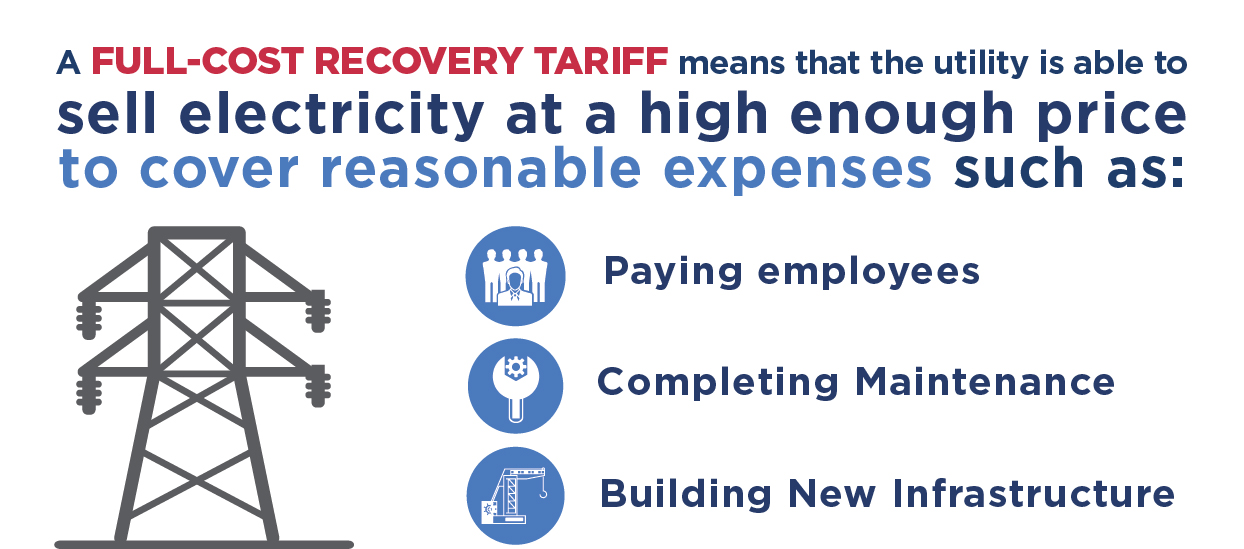
Enabling Environment for Private Investment
The PSRP helped Malawi achieve an environment conducive to private sector investment in electricity generation, thereby achieving a core objective of the overall project. Compact activities yielded substantial regulatory and capacity improvements, including a new market structure, the adoption of a framework for independent power producers (IPPs), a grid code, a tariff methodology, and standardized term sheets and power purchase agreements (PPAs). Although no IPPs were operating yet as of the final evaluation, Malawi had signed nine PPAs amounting to a potential 290 MW of new generation capacity, or 82 percent of the installed capacity at baseline.Utility Financial Performance
The Electrical Supply Corporation of Malawi’s (ESCOM’s) financial situation initially improved dramatically as a result of compact preconditions. PSRP technical assistance built on this firmer financial footing. However, by compact closeout, the financial situation had deteriorated, partly as a result of drought conditions, and the benefits of technical assistance were not evident. For example, a new detailed financial model had been deleted, an improved accounting manual required updating, and the new technology platform was not producing reliable figures.Utility Operations and Corporate Governance
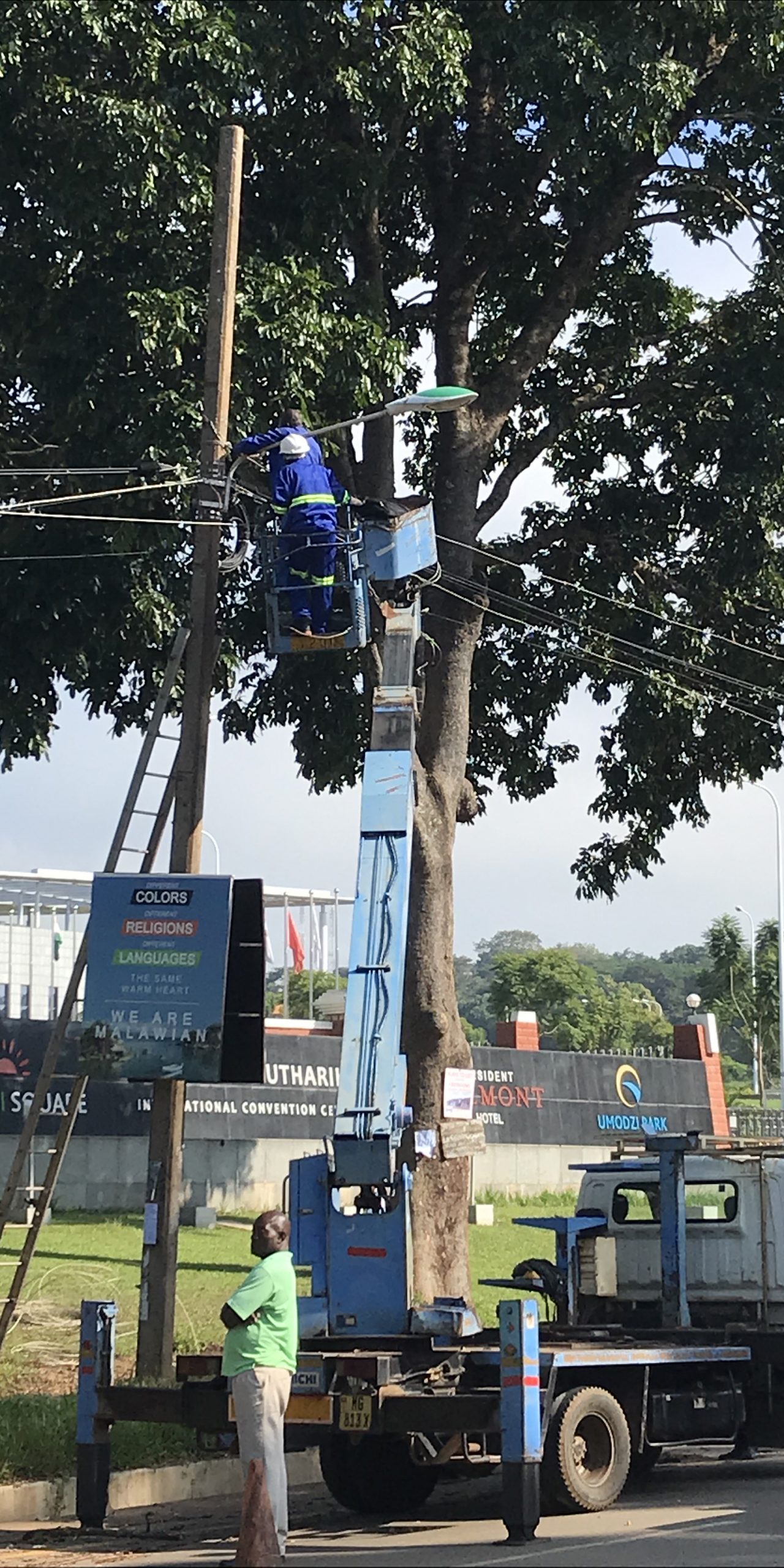
Workers repair electrical lines in Lilongwe, Malawi.
Policy Implications
Given the challenges presented by ESCOM and ESCOM’s governance, future compacts may want to identify key governance reforms during development, and include them as conditions to entry into force. The Malawi experience also highlights the importance of using technical assistance strategically to support reform implementation; regularly adapting technical assistance strategies; and developing institutional structures to coordinate, manage, and be accountable for reform.MCC Learning
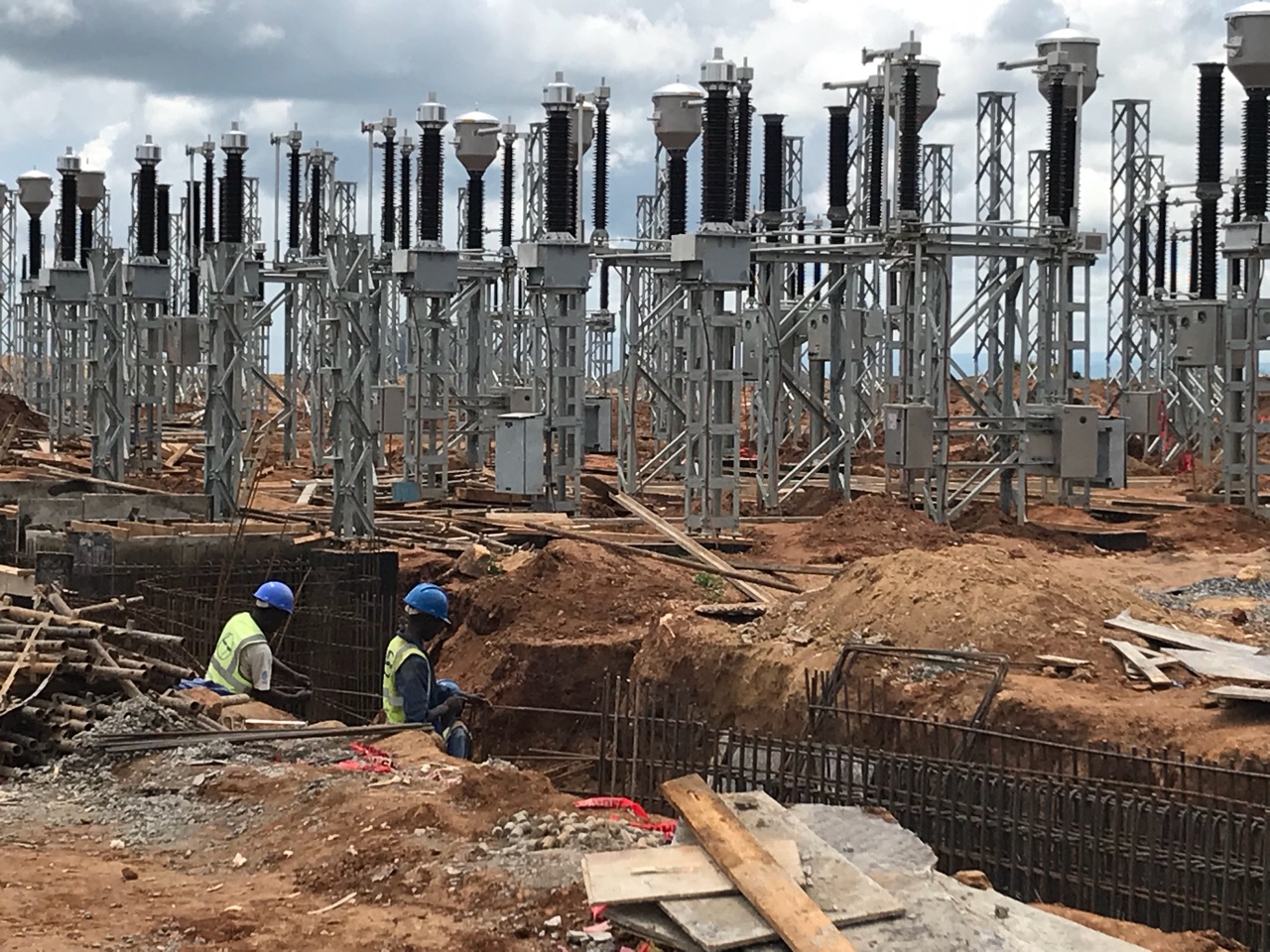
Construction workers building the compact supported Nkhoma substation outside of Lilongwe, Malawi.
- Attune reform strategies appropriately to the country context and the sector’s level of development and ensure that solutions respond to the most essential challenges.
- Efforts to upgrade utility information systems should be started early in the compact to account for the time required for successful rollout, adoption, and continued system support.
- Dedicate sufficient resources and time with appropriate methodologies in recognition of the challenges of large-scale institutional reform.
Evaluation Methods
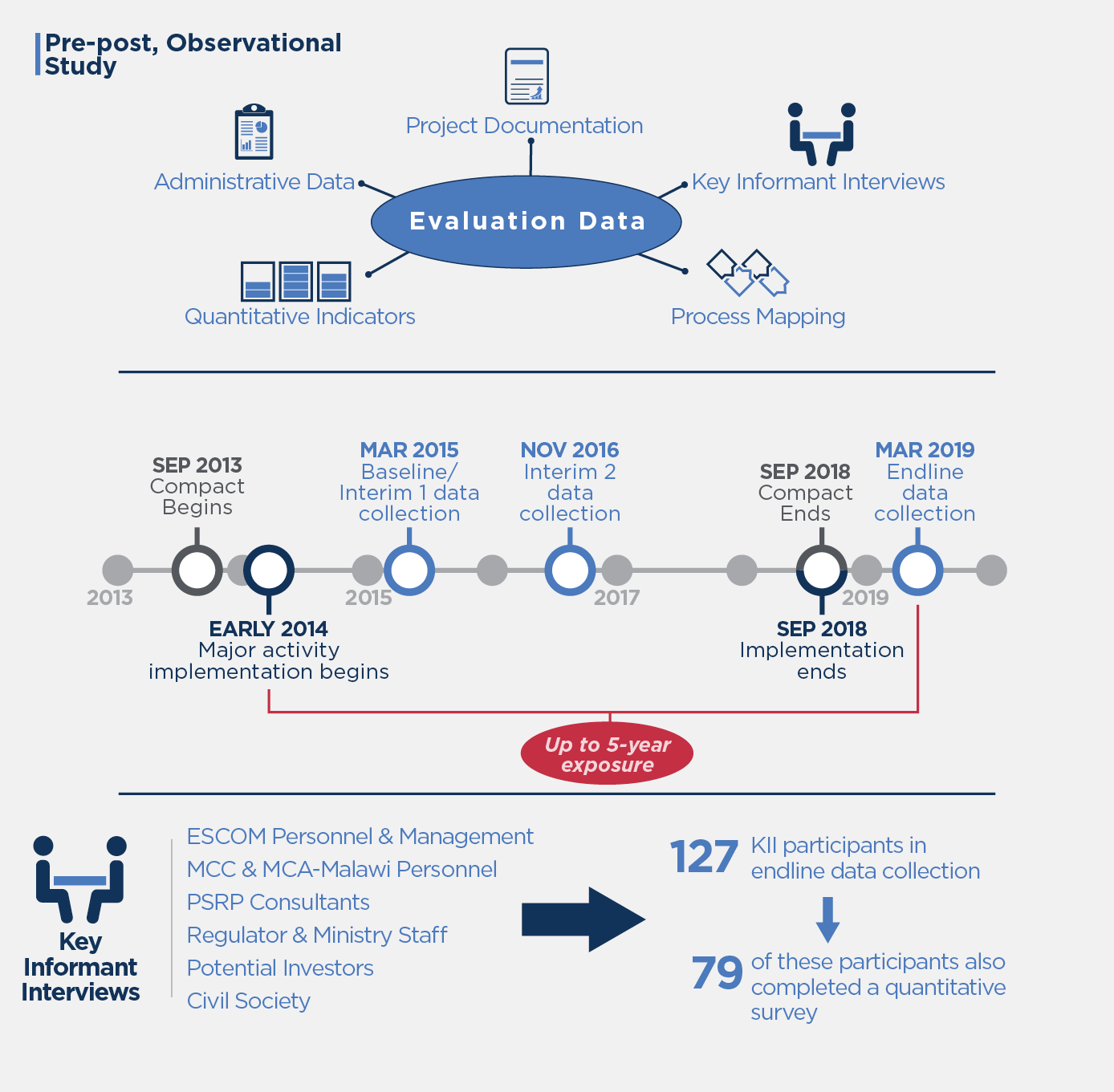
PSRP technical assistance produced a wealth of information in the form of various reports and deliverables. A review of these documents provided initial answers to many of the evaluation questions. Using a process mapping methodology, the evaluation team explored a set of distinct processes the compact was expected to improve, such as responding to power outages and procuring goods and services.
As part of its monitoring and evaluation plan, MCA-Malawi tracked a series of indicators, including financial indicators (e.g., cost recovery ratios, debt-equity ratio, and the current ratio), billing-related indicators (e.g., the bad debt ratio and average collection period in days), and operational indicators (e.g., the maintenance expenditure ratio). The evaluation team used these and other administrative data provided by sector stakeholders. The evaluation team also conducted key informant and group interviews with diverse PSRP stakeholders, including ESCOM personnel and management, MCC and MCA-Malawi personnel, PSRP consultants, regulator and ministry staff, potential investors, and members of civil society. In total, 127 individuals participated in endline data collection activities. Seventy-nine of these individuals (64 percent) also completed a short survey designed to assess respondents’ perceptions of change across the six sub-activities of the PSRP.
2020-002-2400


